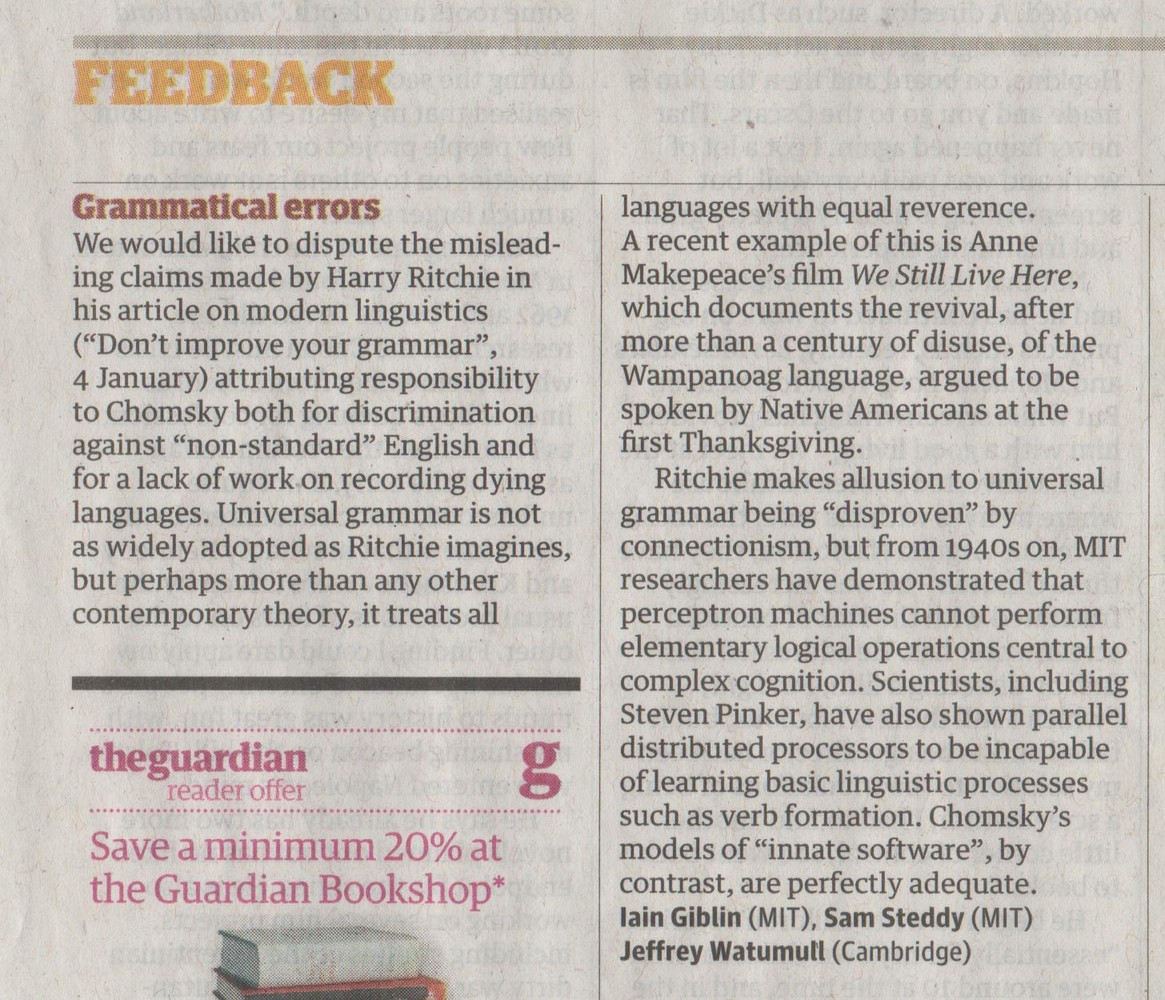The ‘McGill/MIT Workshop on Gradability and Quantity in Language and the Brain’ will be held at MIT on January 31-February 1st in Room 32-141. It is a two day workshop that brings together a group of neuroscientists with an interest in language and a group of experimental and formal linguists interested in the brain, in an attempt to enhance the dialogue between the linguistic and the neurophysiological cultures, and help to close the gap between these two growing groups of researchers. The theme of the workshop is centered on aspects of gradability and quantity as it pertains to the cognitive domains of Number, Space, and Time.
http://brainlang.scripts.mit.edu
The workshop is open and all are welcome to attend. To access the background material for the talks the following information is required: username: brainlang, password: mitmcgill2014
The invited speakers are:
- Katrin Amunts, University of Düsseldorf/Forschungszentrum Jülich
- Irene Heim, MIT
- Andreas Nieder, University of Tübingen
- Martin Hackl, MIT
- Roumyana Pancheva, USC
- Bernhard Schwarz, McGill University
- Veronique Izard, CNRS & Université Paris Descartes
- Manfred Krifka, ZAS and Humbolt University
- Yoad Winter, Utrecht University
- Roger Schwarzschild, Rutgers University
- Galit Sassoon, Bar-Ilan University
- Yonatan Loewenstein, The Hebrew University at Jerusalem
- Hans Otto Karnath, University of Tübingen
- Yosef Grodzinsky, McGill University
